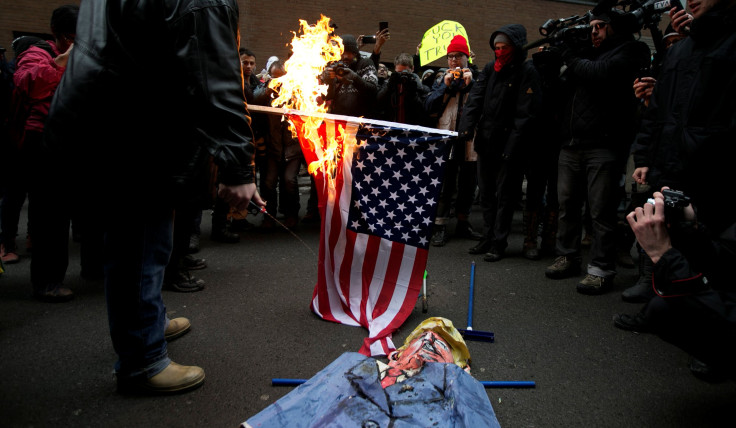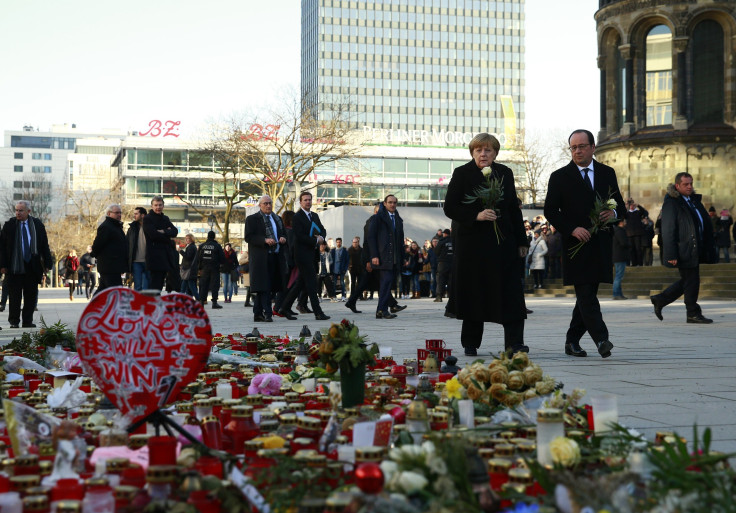Trump's New Political Alliances: France, Germany Warn Of Rising Extremism As UK, Russia Grow Closer To Washington

French and German leadership voiced major concerns Friday over President Donald Trump's policies in a joint press conference Friday in Berlin where the heads of state highlighted the dual threats of Islamic terror and rising nationalism in Europe. Their remarks are the latest international reaction to what appears to be a significant shift in foreign policy under the new U.S. administration.
French President Francois Hollande and German Chancellor Angela Merkel, both political allies of former President Barack Obama, spoke of internal and external threats faced by the European Union. The two leaders have been routinely criticized by Trump for not being tougher on terrorism and immigration, a view echoed by right-wing opposition parties in France and Germany, both of which face national elections this year. Hollande suggested Trump's foreign policy was not aligned with European values and, though he acknowledged the legitimacy of the U.S. democratic process, said the new administration would pose "challenges."
Merkel, whose policies Trump called "a sad, sad shame" last year, focused on waves of populism and extremism that have gripped Europe in recent years. Both France and Germany have been victims of massive Islamist terror attacks, the deadliest of which killed 130 people in a series of bomb and shooting attacks in Paris in November 2015. In Germany, a man believed to have been inspired by the Islamic State group, also known as ISIS, deliberately drove his truck into a crowded Christmas market last month in Berlin, killing 12 people.
"We are facing the Islamist terror threat together, and we want to make clear that we will not let anyone take away the way we live," Merkel said. She also noted rapid changes in "the global framework," including the U.K.'s upcoming departure from the E.U., that both leaders agreed would have serious consequences in the region.

Trump has distanced himself from his predecessor's mainstream allies in Europe and forged new friendships elsewhere. U.K. Prime Minister Theresa May has been a vocal supporter of the new U.S. president and became the first foreign leader Thursday to meet him following his inauguration last week. In a speech, May said she was eager to "lead together again" with Trump.
Trump has also expressed his political support for Russian President Vladimir Putin, whom the Obama administration considered an adversary. Trump and Putin are expected to speak by phone Saturday in the first official correspondence between the White House and the Kremlin since Trump began his presidency. Trump has said he wants Washington and Moscow to work together on foreign policy, especially in the fight against ISIS, a view that Putin has welcomed.
Trump has also caused concern among fellow members of NATO, the international military alliance the president called "obsolete."
The new president's policy in the Asia Pacific has been less clear as of yet, causing concerns among allies like South Korea and Japan, who recently said it was preparing for changes in U.S. trade policy. Trump has also taken tough stances on China and North Korea, but said he was open to dialogue over regional interests.
© Copyright IBTimes 2024. All rights reserved.





















